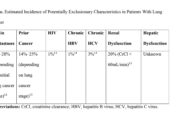When compensating participants in clinical trials, the objective is to show appreciation and consideration for a patient’s time and expenses without exerting undue influence. The Office for Human Research Protections of the U.S. Department of Health and Human Services (HHS) defines undue influence as a potential consequence of an “offer of an excessive or inappropriate reward or other overture to obtain compliance.” However, there is no uniform measure for what constitutes an excessive or inappropriate reward.
According to Arthur L. Caplan, PhD, the Drs. William F. and Virginia Connolly Mitty Professor of Bioethics in the Department of Population Health at NYU Langone Health, undue influence can be identified not through a specific monetary amount, but rather through a mindset.
According to Dr. Caplan a person who is enrolled in a trial but is completely unable to reiterate the risks associated with the trial is being overcompensated. “The real sign of risk is not any particular amount, but whether it’s distorting the participant’s ability to pay attention to the risks they are taking,” he said in an interview with IASLC Lung Cancer News (ILCN).
In guidance issued by the Secretary’s Advisory Committee on Human Research Protections (SACHRP) of the HHS, the committee outlined the ethical factors that institutional review boards and investigators should consider when determining the situations or types of payment that may exert undue influence on a clinical trial participant.1
These recommendations state that a payment may threaten to exert undue influence when it “appears likely to inhibit potential participants’ adequate consideration of and reflection about important study features, such as risks, burdens and discomfort, and impair their understanding of the research and their participation in it.”
Clarity and Consent
David R. Spigel, MD, chief scientific officer and director of the Lung Cancer Research Program, and principal investigator at Sarah Cannon, the cancer institute of HCA Healthcare, said such concerns are especially relevant in cancer clinical trials.
“I know participants are paid for healthy volunteer studies, but for a patient who is struggling with cancer and looking at their options between standard-of-care treatment or something experimental, it’s a different dynamic,” Dr. Spigel said in an interview with ILCN. “My concern is that when you influence dollars, you could be introducing financial motivations for a decision that should be based entirely on the patient’s medical needs.”
The SACHRP guidance noted that, other than incentive payments, it is unlikely that compensation to clinical trial participants would exert undue influence. The document stated that, even if payment influences an individual’s decision to participate in research, this “does not make that decision involuntary or that influence undue, even if an individual would not have chosen to participate without payment—and even if the individual might have opted to participate even if no payment was offered.” The document pointed out that decision making is always influenced by several factors, adding that “when people adequately consider and understand what they are being asked to do and when what they are being asked to do is acceptable, there is no reason for ethical concern.”
Dr. Caplan said, however, that it is important to consider the socioeconomic status and overall circumstances of a potential study population when offering compensation to participants. For example, he noted that prisoners may hastily enroll in trials because of a relative lack of finances.
“I think you do have to be aware of the situation that the person is in,” Dr. Caplan said. “If it’s a poor population in Africa and you’re offering big sums of money, that person might feel as though it’s an irresistible offer,” he said. “If I go to a poor nation and I want to test a cancer drug or vaccine, and every single person signs up, I also start to think I might be paying too much.”
Dr. Spigel added that if compensation began to have an outsized impact on patients’ willingness to participate, this could also prevent smaller companies from being able to successfully accrue participants to clinical trials and launch new treatments.
“Let’s say it became a law that all companies must compensate patients in some standard amount; you wonder if that would disadvantage smaller companies in terms of the kind of research that gets done,” he said. “You wonder if it could impact the kinds of trials we see and the kind that can be conducted.”
Dr. Caplan said he thinks the guidelines are a step forward in clarifying the issue, but added that more work will likely be needed.
“There’s been a push over the past few years to permit payment for participants in all clinical trials—people basically argue that it’s paternalistic to say someone can’t make money by participating,” he said. “However, I would also point out that payment policies are inconsistent. Some places offer a lot, some don’t. Prisoners don’t get paid very much. Participants in suburban environments get paid more.”
He stressed the need for greater transparency and uniformity in clinical trial compensation.
“I don’t disagree that this issue needs to be revisited, and I think this guidance does that,” he said. “But I still think we should do a better job on the consent side. I think it should be made very clear at the time of consent what the study’s risks are, and then we should quiz participants to make sure they understand the risks after you’ve told them what the pay is.”
“Brutally Unfair”
The definition of “undue influence” is an altogether different matter from Linnea Olson’s perspective. The patient advocate and activist, who was diagnosed with NSCLC in 2005, continues to live with stage 4 NSCLC. As a participant in clinical trials, Ms. Olson can’t help but question the idea that she would be disproportionately swayed by anything other than the need to beat her cancer.
“When I speak about this, I always say that the inducement piece, the ‘undue influence’ factor, is just crap, because I’m only induced by my impending mortality,” Ms. Olson told ILCN. “I became outspoken about this when I realized that, at the Starbucks across the street from the hospital where I’ve spent almost a decade in phase I clinical trials, there is a posting on the bulletin board seeking healthy volunteers for clinical trials. They are being compensated. I just thought that was so brutally unfair.”
Ms. Olson said she paid for her own parking for 10 years, but eventually asked to be compensated.
“That was the first thing I started asking for,” she said. “At the hospital, if you’re getting something like radiation, you get a coupon so your parking is paid for. But clinical trial participants don’t get any of those benefits.”
She added that there are often hidden costs that come with clinical trial participation. Although the study medication is free, some follow-up procedures are not.
“Most people think of clinical trials as being free; what many don’t realize is that, although the experimental therapeutic is free and certain procedures will be picked up by the sponsor, everything else is billed to insurance,” she said. “The schedule for these trials is different; it’s not standard of care. I’m in a relatively new trial now, and I’m getting scanned every 6 weeks. So, the participant ends up paying the copays, the deductible.”
According to Ms. Olson, she is now fortunate enough to be on MassHealth insurance, which has been valuable to her. She added, however, that this year is the first in many years when she has not “maxed out” her insurance deductible in the month of January.
“That happens because I’m in clinical trials,” she said.
Ms. Olson said that participants in cancer trials deserve the same consideration for compensation as healthy volunteers. She emphasized that, with their lives at stake, these patients are unlikely to be excessively influenced by money. She said she believes that, in fact, clinical trial sponsors know they don’t need to financially incentivize participation for patients with cancer.
“They pay healthy participants, and the reason why is that they wouldn’t do it otherwise,” she said. “For those of us with cancer, though, they know we’re desperate. We’re going to do it anyway.”
She also cited nonpayment as a possible reason for the persistent and gaping racial disparities in clinical trial enrollment.
“People need to understand that, because of this, clinical trial participation is limited to a rather elite population—in other words, people with the means to do this,” she said. “It’s not just unfair; it’s bad science. I think that compensating patients would help to address some of this disparity and would ensure that more people who are disadvantaged, and frankly, more minorities, would be represented in trials.”
Ms. Olson said that even though she has been relatively lucky in her ability to afford cancer treatment, she has struggled with the cost of clinical trial participation, including travel, time off from work, childcare, and more.
“It is expensive, absolutely,” she said. “I think that reimbursing a participant for that is not an attempt to influence them. It’s just an attempt to make this feasible for them, so that they can actually do this.”
- 1. US Department of Health and Human Services. Attachment A—Charging Subjects for Clinical Trial Participation. https://www.hhs.gov/ohrp/sachrp-committee/recommendations/november-20-2…. Accessed March 23, 2020.




